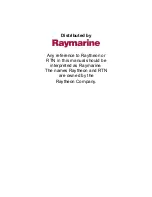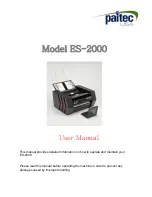
Thank you for purchasing a Sealey product. Manufactured to a high standard this product will, if used according to these instructions
and properly maintained, give you years of trouble free performance.
1. SAFETY INSTRUCTIONS
IMPORTANT:
PLEASE READ THESE INSTRUCTIONS CAREFULLY. NOTE THE SAFE OPERATIONAL REQUIREMENTS, WARNINGS AND
CAUTIONS. USE THIS PRODUCT CORRECTLY AND WITH CARE FOR THE PURPOSE FOR WHICH IT IS INTENDED. FAILURE TO DO SO MAY
CAUSE DAMAGE OR PERSONAL INJURY, AND WILL INVALIDATE THE WARRANTY. PLEASE KEEP INSTRUCTIONS SAFE FOR FUTURE USE.
INSTRUCTIONS FOR:
PARTS CLEANING TANK
MODEL No:
SM21.V3
1.2 .
GENERAL SAFETY
WARNING!
Ensure Health & Safety, local authority, and general workshop practice regulations are adhered to when using this equipment.
Familiarise yourself with product application and limitations, as well as the specific potential hazards peculiar to the cleaning tank.
WARNING!
Disconnect the parts washer from the mains power before changing accessories, servicing or performing any maintenance.
Maintain the parts washer in good condition (use an authorised service agent).
Replace or repair damaged parts.
Use genuine parts only. Non-authorised parts may be dangerous and will invalidate the warranty.
WARNING!
DO NOT
modify the lid or jam it open. Keep the lid and holding screws in place, tight and in good working order.
Locate the parts washer in an adequate working area for its function, Ensure the washer is stood on a firm level surface. Keep area clean
and tidy and free from unrelated materials. Ensure the area is well ventilated and has adequate lighting.
Keep the cleaning tank away from heat sources such as heater, sparks, open flames etc.
Keep the tank clean. Remove and clean the filter regularly for best and safest performance.
Ensure there are no flammable or combustible materials near the work area.
WARNING!
Always wear approved eye or face protection when operating the cleaning tank.
Remove ill fitting clothing. Remove ties, watches, rings and other loose jewellery, and contain long hair.
Wear appropriate protective clothing.
Maintain correct balance and footing. Ensure the floor is not slippery and wear non-slip shoes.
Keep children and unauthorised persons away from the working area.
Avoid accidental starting of the washer. Ensure that it is unplugged from the mains supply when not in use.
Incase of fire in parts unit, close the lid, do not attempt to remove parts, or the washer.
DO NOT
use the cleaning tank for any purpose other than for which it is designed.
DO NOT
use cleaning tank in wet or damp locations or areas where there is condensation.
1.1.
ELECTRICAL SAFETY.
WARNING! It is the user’s responsibility to read, understand and comply with the following:
You must check all electrical equipment and appliances to ensure they are safe before using. You must inspect power supply leads, plugs and
all electrical connections for wear and damage. You must ensure the risk of electric shock is minimised by the installation of appropriate safety
devices. An RCCB (Residual Current Circuit Breaker) should be incorporated in the main distribution board. We also recommend that an RCD
(Residual Current Device) is used with all electrical products. It is particularly important to use an RCD together with portable products that are
plugged into an electrical supply not protected by an RCCB.
If in doubt consult a professional electrician. You may obtain a Residual Current Device by contacting your Sealey dealer.
You must
also read
and understand the following instructions concerning electrical safety.
1.1.1. The
Electricity At Work Act 1989
requires all portable electrical appliances, if used on business premises, to be tested by a
qualified electrician, using a Portable Appliance Tester (PAT), at least once a year.
1.1.2. The
Health & Safety at Work Act 1974
makes owners of electrical appliances responsible for the safe condition of the appliance
and the safety of the appliance operator.
If in any doubt about electrical safety, contact a qualified electrician.
1.1.3. Ensure the insulation on all cables and the product itself is safe before connecting to the mains power
supply. See 1.1.1. & 1.1.2. above and use a Portable Appliance Tester (PAT).
1.1.4. Ensure that cables are always protected against short circuit and overload.
1.1.5. Regularly inspect power supply, leads, plugs for wear and damage and all electrical connections
to ensure that none are loose.
1.1.6.
Important:
Ensure the voltage marked on the product is the same as the electrical power supply
to be used, and check that plugs are fitted with the correct capacity fuse. A 13amp plug may require a
fuse smaller than 13amps for certain products (
subject to 1.1.10. below)
see fuse rating at right.
1.1.7.
DO NOT
pull or carry the powered appliance by its power supply lead.
1.1.8.
DO NOT
pull power plugs from sockets by the power cable.
1.1.9.
DO NOT
use worn or damage leads, plugs or connections. Immediately replace or have repaired by a
qualified electrician. A U.K. 3 pin plug with ASTA/BS approval is fitted. In case of damage, cut
off and fit a new plug according to the following instructions (discard old plug safely).
(UK only - see diagram at right).
Ensure the unit is correctly earthed via a three-pin plug.
a) Connect the GREEN/YEllOW earth wire to the earth terminal ‘E’.
b) Connect the bROWN live wire to live terminal ‘l’.
c) Connect the bluE neutral wire to the neutral terminal ‘N’.
After wiring, check that there are no bare wires, that all wires have been correctly connected, that the cable outer insulation
extends beyond the cable restraint and that the restraint is tight.
Double insulated products are often fitted with live (BROWN) and neutral (BLUE) wires only. Double insulated products are always
marked with this symbol .
To re-wire, connect the brown & blue wires as indicated above.
DO NOT connect the brown or blue
to the earth terminal.
1.1.10. Some products require more than a 13amp electrical supply. In such a case,
NO
plug will be fitted.
You must
contact a qualified
electrician to ensure a 30amp fused supply is available. We recommend you discuss the installation of an industrial round pin plug and
socket with your electrician.
1.1.11.
Cable extension reels
. When a cable extension reel is used it should be fully unwound before connection. A cable reel with an RCD
fitted is recommended since any product which is plugged into the cable reel will be protected. The section of the cores of the cable
on the reel is important. Use1.5mm² section cable as a minimum, but to be absolutely sure that the capacity of the cable reel is
suitable for this product and for others that may be used in the other output sockets, we recommend the use of 2.5mm² section cable.
WE RECOMMEND THAT A
FUSE RATED AT 3AMPS IS
FITTED TO THIS PRODUCT
Original Language Version
SM21.V3 Issue: 4 - 07/06/12
© Jack Sealey Limited




















